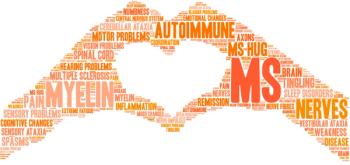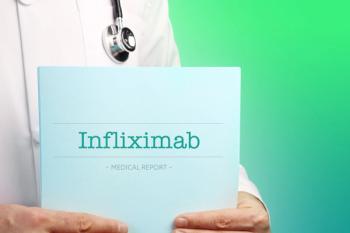
The FDA may approve KarXT, an antipsychotic that does not have the side effects of some other antipsychotics because it does not affect dopamine receptors.

The FDA may approve KarXT, an antipsychotic that does not have the side effects of some other antipsychotics because it does not affect dopamine receptors.

In one key finding of the study, about half of the healthcare professionals listed bowel urgency as one of the top five symptoms that impact patients’ lives, however, only about a quarter of them ranked it as a top three symptom affecting treatment decisions.

In clinical guidelines, TNF inhibitors remain the preferred first-line advanced treatment for UC despite the emergence of new biologics approved for UC and Crohn’s disease. Head-to-head trials comparing the effectiveness of these treatments are scarce.

In a study recently published in BMJ Open Gastroenterology, researchers led by Pernille Dige Ovesen from the department of gastroenterology and hepatology in Copenhagen University Hospital investigated the effect of concomitant corticosteroid therapy on treatment outcomes in patients with UC initiating infliximab.

Researchers completed a phase 2 clinical trial investigating the use of autologous stem cell-derived neural progenitors as a treatment option in patients with progressive forms of multiple sclerosis.

TG Therapeutics, Briumvi’s manufacturer, currently recommends that patients who can get pregnant use an effective method of contraception during treatment with Briumvi and for at least six months after the last Briumvi dose. A pregnancy test before each treatment is also recommended.

Progentos will use the funding to advance its multiple sclerosis (MS) program through human proof of concept clinical studies and expand its small molecule pipeline to other degenerative conditions.

Drug developers hope to get in on the action in the hot-selling weight loss drug class

Major drug companies have been snatching up biotech companies that developing antibody-drug conjugates (ADCs) targeting a variety of cancers.

This data is based off of a study conducted by a group of researchers led by Niklas Frahm from the German Multiple Sclerosis Registry to compare the characteristics of patients with MS who switched from their first disease-modifying therapies (DMT) with those of patients who continued taking their first DMT.

The FDA has approved six with dermatologic indications and more are in late-stage trials.

About 30% of people with Crohn’s disease, but on a population basis, it is rare event.

Home testing for fecal calprotectin, a commonly used marker in IBD diagnosis, and symptom quetionnaires might hasten the diagnosis of inflammatory bowel disease.

Although several clinical trials have confirmed the safety and efficacy of rituximab in oncology and autoimmune disease, and even as off-label use in MS, real-world evidence is still necessary to help guide clinicians and managed care professionals in their treatment and coverage decision-making.


At 12 months, the rate of IBD-related surgeries for the monitored group was 1% versus 7% for the control group.


Drug repurposing has recently emerged as an attractive pathway for developing new treatments due to its relatively fast and cost-efficient trajectory. Because obesity and MS share inflammatory properties, researchers used data from the FDA Adverse Event Reporting System to investigate the association between weight loss-inducing drugs and MS

If the company' experimental agent is approved, it would join Humira (adalimumab), Rinvoq (upadacitinib) and Skyrizi (risankizumab) in AbbVie's portfolio.


Darina Georgieva, Pharm.D., and her colleagues from the department of pharmaceutical services at Vanderbilt University Medical Center, conducted a retrospective observational study to learn the costs avoided through specialty pharmacist interventions for patients at the Vanderbilt MS Clinic. The study results were published in the Journal of Managed Care and Specialty Pharmacy earlier this month.

Fecal microbiota transplant has not been approved for ulcerative colitis, but off-label use is a possiblity.

Insurance policy adherence to clinical guidelines ranged from 6% to 59%, according to findings reported in American Journal of Gastroenterology.

Elimination of insurance-mandated step therapy and allowing the Medicare beneficiaries to use copay assistance programs are among the changes the American Gastroenterological Association (AGA) wants to see.

Seres Therapeutics in Cambridge, Massachusetts, is one of the recipients.

Women are at risk for disease progression when they stop treatment for multiple sclerosis during pregnancy.

As with adult-onset MS, early treatment of pediatric-onset MS (POMS) is essential to halt disease progression, including early disability, brain volume loss, and cognitive impairment.

Biotech companies and researchers are investigating whether psychedelics could be used to treat a variety of mental health problems, including post-traumatic stress disorder and depression.

Advances in MS disease management have included the emergence of monoclonal antibodies as effective disease-modifying therapies (DMTs) for MS. FDA-approved treatments include Tysabri (natalizumab), Lemtrada (alemtuzumab), Ocrevus (ocrelizumab), and Kesimpta (ofatumumab).

In a retrospective study, researchers from Humana in Louisville, KY, compared clinical outcomes, time on treatment, healthcare resources utilization, and relative costs in patients with MS that were newly initiated on one of the following oral DMTs: dimethyl fumarate, fingolimod, or teriflunomide.